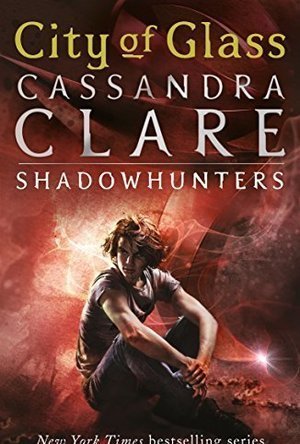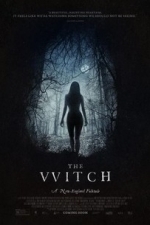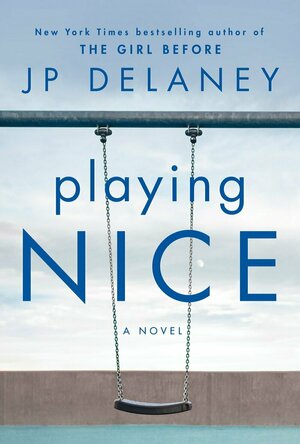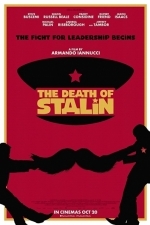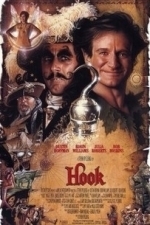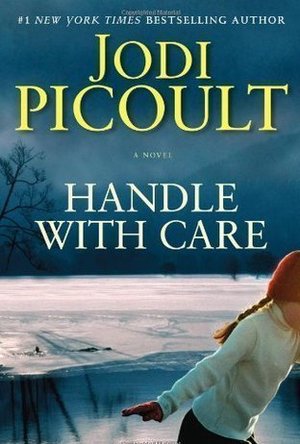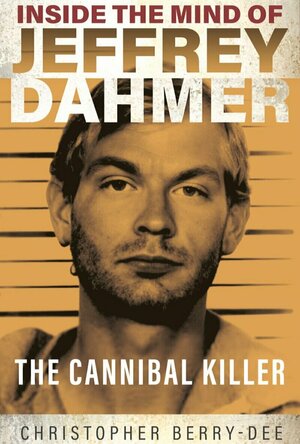Search
Kyera (8 KP) rated City of Glass (The Mortal Instruments, #3) in Books
Jan 31, 2018
City of Glass sent me on an emotional rollercoaster. You know characters are well written when you viscerally feel the emotions that they are experiencing, you connect with them as if they are real people and cannot help but be completed enamoured with the story. Of course, to get this experience you need to follow the characters on their journey from the first book, City of Bones. This is not a book that you could read by itself and fully understand the immersive and expansive world that Cassie has built.
Even though I may usually not be consciously thinking about the fact that I’m going to review a book – I believe having been writing reviews much more frequently I am more cognizant of the aspects of a book. I am now subconsciously more aware of a book, especially with a re-read or an author I’m familiar with. I’m so used to having spent the last decade with the characters from the Mortal Instruments, that I feel I had forgotten who they were at the start. You don’t realize just how much they’ve grown until you re-read the books.
Each character learns so much over the course of the books that we get to know them and watch them evolve. The Clary I think of is artistic, strong, passionate, fiercely loyal and loving, brave and capable – so it is strange seeing her when she is new to the Shadow World. You can see the potential, although she has not grown and matured into that person yet. In City of Glass, I was amazed to be reminded just how whiny, child-like, quick to anger and throw temper tantrums, and reckless she could be.
I’ve mentioned it before, but I am continually impressed with and in awe of how much Cassandra Clare’s writing has improved over the years. Just the level of growth each principle character experiences over the course of the novels is fantastic. There were also so many emotional or action-filled scenes that the plot just raced by, but not in a bad it. I just fell completely into the story and didn’t want to put it down.
The fact that, even three books later, Cassie continues to expand the world she builds is incredible. I love when a fictional world, even one set within our own with hidden depth, is so real that you feel like you could live there. You understand the way of the world and its nuances. It was wonderful getting to see the Shadowhunters’ home country, Idris and the city of Alicante.
I can’t really discuss more without there being spoilers from the first two books or City of Glass, so all I have left to say is please read this series. If you give it a chance, even if it’s not perfect at first, I hope you will fall in love with it just like I did.
Even though I may usually not be consciously thinking about the fact that I’m going to review a book – I believe having been writing reviews much more frequently I am more cognizant of the aspects of a book. I am now subconsciously more aware of a book, especially with a re-read or an author I’m familiar with. I’m so used to having spent the last decade with the characters from the Mortal Instruments, that I feel I had forgotten who they were at the start. You don’t realize just how much they’ve grown until you re-read the books.
Each character learns so much over the course of the books that we get to know them and watch them evolve. The Clary I think of is artistic, strong, passionate, fiercely loyal and loving, brave and capable – so it is strange seeing her when she is new to the Shadow World. You can see the potential, although she has not grown and matured into that person yet. In City of Glass, I was amazed to be reminded just how whiny, child-like, quick to anger and throw temper tantrums, and reckless she could be.
I’ve mentioned it before, but I am continually impressed with and in awe of how much Cassandra Clare’s writing has improved over the years. Just the level of growth each principle character experiences over the course of the novels is fantastic. There were also so many emotional or action-filled scenes that the plot just raced by, but not in a bad it. I just fell completely into the story and didn’t want to put it down.
The fact that, even three books later, Cassie continues to expand the world she builds is incredible. I love when a fictional world, even one set within our own with hidden depth, is so real that you feel like you could live there. You understand the way of the world and its nuances. It was wonderful getting to see the Shadowhunters’ home country, Idris and the city of Alicante.
I can’t really discuss more without there being spoilers from the first two books or City of Glass, so all I have left to say is please read this series. If you give it a chance, even if it’s not perfect at first, I hope you will fall in love with it just like I did.
Sean Freese (4 KP) rated The Witch (2015) in Movies
Jun 25, 2020
THE VVITCH
The full title is, The Witch: A New England Folktale. Like Grimm’s fairytales, American folklore has taken revisions over the centuries to become a palatable collection of juvenile life lessons. Anyone who has read the original versions of these stories knows how brutal, horrifying, and far removed they are from our current values. As much as I would not condone reading original classic witch tales to a small child, they do contain much deeper implications and ideas than the simple “Don’t tell lies” that are gleaned from modern revisions. What’s fascinating about The Witch is how familiar the setting and story is, without a single cliché or moment of prediction to speak of. The evil that was feared in 17th Century Puritan America has been so eclipsed by the human horrors of The Salem Witch Trials, that we have forgotten what it was to fear a witch.
We know these characters only by their Christian names. William removes his family from their Colonial settlement due to an incompatibility of faith. The colony of Puritans isn’t Christian enough. With his wife, Katherine, William takes his 4 children into the wilds of the Northeast. Airs of The Crucible envelope the setting. Common pronouns are replaced with “thines” and “thous”. Dialogue is delivered as if quoted from Shakespeare or the Bible itself. In the past, this oral dynamic has always sounded ardently rehearsed. Somehow, it’s natural here. Considering William’s rigorous faith, you might expect him to be an overbearingly shrewd father. He is in fact a loving and good man of his time; often a pushover. Katherine is the more fearsome parent, with a shrill voice and gaunt pointed face. While they do live in hardship, this is a good family. Once Fall deadens the colors and greys the skies, things begin to take a disturbing turn.
Ralph Ineson and Kate Dickie play the parents without an exaggeration of the material. Remarkable still are the actors portraying their children. Harvey Scrimshaw plays William’s 10-year-old son, Caleb, as natural as can be imagined. The dramatic beats of a horror movie come with taxing climactic moments and Scrimshaw acts beyond his years. Anya Taylor-Joy plays the eldest daughter Thomasin; a doe-eyed blonde beauty who plays the most relatable character of the flock. The dynamic between Caleb and Thompsin has notes of innocent sexual tension. Their secluded life leaves a great deal of new feelings that can’t be addressed due to their customs. These feelings lead to foreign temptations that are preyed upon by the timeless evil beyond the trees.
The greatest achievement of this film is how faithful it is to its setting and story, while keeping enough behind the veil to become engrossing. The tale feels as old as any, drawing from universal fears and motivations. How it draws you in, keeping you tied to the victims and their perspective while keeping the evil at arm’s length, shows a discipline of craft that greatly compliments the material. Much like vampires, witches have been trivialized and diluted by film into something superficially attractive and entertainingly evil. As with Noseferatu, seeing a witch living a damnable existence of ugliness is much more appropriate. If they’re ever beautiful, they won’t be for long.
The full title is, The Witch: A New England Folktale. Like Grimm’s fairytales, American folklore has taken revisions over the centuries to become a palatable collection of juvenile life lessons. Anyone who has read the original versions of these stories knows how brutal, horrifying, and far removed they are from our current values. As much as I would not condone reading original classic witch tales to a small child, they do contain much deeper implications and ideas than the simple “Don’t tell lies” that are gleaned from modern revisions. What’s fascinating about The Witch is how familiar the setting and story is, without a single cliché or moment of prediction to speak of. The evil that was feared in 17th Century Puritan America has been so eclipsed by the human horrors of The Salem Witch Trials, that we have forgotten what it was to fear a witch.
We know these characters only by their Christian names. William removes his family from their Colonial settlement due to an incompatibility of faith. The colony of Puritans isn’t Christian enough. With his wife, Katherine, William takes his 4 children into the wilds of the Northeast. Airs of The Crucible envelope the setting. Common pronouns are replaced with “thines” and “thous”. Dialogue is delivered as if quoted from Shakespeare or the Bible itself. In the past, this oral dynamic has always sounded ardently rehearsed. Somehow, it’s natural here. Considering William’s rigorous faith, you might expect him to be an overbearingly shrewd father. He is in fact a loving and good man of his time; often a pushover. Katherine is the more fearsome parent, with a shrill voice and gaunt pointed face. While they do live in hardship, this is a good family. Once Fall deadens the colors and greys the skies, things begin to take a disturbing turn.
Ralph Ineson and Kate Dickie play the parents without an exaggeration of the material. Remarkable still are the actors portraying their children. Harvey Scrimshaw plays William’s 10-year-old son, Caleb, as natural as can be imagined. The dramatic beats of a horror movie come with taxing climactic moments and Scrimshaw acts beyond his years. Anya Taylor-Joy plays the eldest daughter Thomasin; a doe-eyed blonde beauty who plays the most relatable character of the flock. The dynamic between Caleb and Thompsin has notes of innocent sexual tension. Their secluded life leaves a great deal of new feelings that can’t be addressed due to their customs. These feelings lead to foreign temptations that are preyed upon by the timeless evil beyond the trees.
The greatest achievement of this film is how faithful it is to its setting and story, while keeping enough behind the veil to become engrossing. The tale feels as old as any, drawing from universal fears and motivations. How it draws you in, keeping you tied to the victims and their perspective while keeping the evil at arm’s length, shows a discipline of craft that greatly compliments the material. Much like vampires, witches have been trivialized and diluted by film into something superficially attractive and entertainingly evil. As with Noseferatu, seeing a witch living a damnable existence of ugliness is much more appropriate. If they’re ever beautiful, they won’t be for long.
Kristy H (1252 KP) rated Playing Nice in Books
Sep 17, 2020
Fast-paced thriller that plays on your emotions
Pete Riley, his wife Maddie, and young son Theo have their lives upended one day when two strangers show up on their doorstep. One claims to be Theo's biological father, Miles Lambert. He tells Pete that Theo and another baby, David--whom the Lamberts have been raising--were switched at the hospital and sent home with the unsuspecting families. Suddenly Pete and Maddie have been raising "the wrong" child for the past two years. The families form a friendship based on their shock, agreeing not to upend the children's lives. But as the Lamberts prepare to the sue hospital, questions are raised, and soon Pete and Maddie start to wonder how much they can trust Miles and his wife, Lucy. What are they hiding--and how far will they go to get Theo back?
"'I'm sorry to have to tell you that Theo isn't your son. He's mine.'"
Delaney's latest is a fast and compulsive read. Told in alternating perspectives from Maddie and Pete, with some flashes to the past, the book is stressful and makes you think. What would I do in this situation? And what a terrible situation to be in. With both boys being two-years-old, they are already comfortable in their family lives. At first, each family is determined not to switch the children back. But it soon becomes clear that Theo is progressing better than David, who requires more specialized care. Is that what's affecting Miles out-sized affection for his newfound son? His constant, unannounced appearances on Pete and Maddie's doorstep? Meanwhile, Maddie feels wracked with guilt at leaving David behind. The emotions and decisions are clearly complicated.
I myself was fascinated that Delaney brought up a "baby switch" case in Charlottesville, VA at the hospital where I was born, though far earlier. If I had known about this case, I must have forgotten; I would have been in my mid-teens and probably not caring about such things at the time. Anyway, it was intriguing to hear a local reference, and it totally pushed me down the rabbit hole of researching that case (which is completely tragic).
It's hard to truly like any of these characters, even Maddie and Pete, who are initially sympathetic. Let's not even get started on Miles, who truly plays the villain well. But I appreciated that the characters and their feelings are complicated and well-portrayed here. While much of the story is character-driven, it's also a mystery, unraveling what happened when the boys were switched, and it's quite interesting.
The plot in this one moves quickly, escalating fast. I predicted the ending, but it didn't do much to diminish my enjoyment of the book. If you're looking for a different and fast-paced thriller, which also gets you thinking about emotional family dilemmas, definitely recommend. 3.5 stars.
"'I'm sorry to have to tell you that Theo isn't your son. He's mine.'"
Delaney's latest is a fast and compulsive read. Told in alternating perspectives from Maddie and Pete, with some flashes to the past, the book is stressful and makes you think. What would I do in this situation? And what a terrible situation to be in. With both boys being two-years-old, they are already comfortable in their family lives. At first, each family is determined not to switch the children back. But it soon becomes clear that Theo is progressing better than David, who requires more specialized care. Is that what's affecting Miles out-sized affection for his newfound son? His constant, unannounced appearances on Pete and Maddie's doorstep? Meanwhile, Maddie feels wracked with guilt at leaving David behind. The emotions and decisions are clearly complicated.
I myself was fascinated that Delaney brought up a "baby switch" case in Charlottesville, VA at the hospital where I was born, though far earlier. If I had known about this case, I must have forgotten; I would have been in my mid-teens and probably not caring about such things at the time. Anyway, it was intriguing to hear a local reference, and it totally pushed me down the rabbit hole of researching that case (which is completely tragic).
It's hard to truly like any of these characters, even Maddie and Pete, who are initially sympathetic. Let's not even get started on Miles, who truly plays the villain well. But I appreciated that the characters and their feelings are complicated and well-portrayed here. While much of the story is character-driven, it's also a mystery, unraveling what happened when the boys were switched, and it's quite interesting.
The plot in this one moves quickly, escalating fast. I predicted the ending, but it didn't do much to diminish my enjoyment of the book. If you're looking for a different and fast-paced thriller, which also gets you thinking about emotional family dilemmas, definitely recommend. 3.5 stars.
Bob Mann (459 KP) rated The Death Of Stalin (2017) in Movies
Sep 29, 2021
Death…. Torture…. Child Abuse…. LOL??
Armando Iannucci is most familiar to TV audiences on both sides of the pond for his cutting political satire of the likes of “Veep” and “The Thick of It”, with his only previous foray into directing movies being “In the Loop”: a spin-off of the latter series. Lovers of his work will know that he sails very close to the wind on many occasions, such that watching can be more of a squirm-fest than enjoyment.
Rupert Friend (centre) tries to deliver a eulogy to his father against winged opposition. With (from left to right) Michael Palin, Jeffrey Tambor, Steve Buscemi and Simon Russell Beale.
It should come as no surprise then that his new film – “The Death of Stalin” – follows that same pattern, but transposed into the anarchic and violent world of 1950’s Russia. Based on a French comic strip, the film tells the farcical goings on surrounding the last days of the great dictator in 1953. Stalin keeps distributing his “lists” of undesirables, most of who will meet unpleasant ends before the end of the night. But as Stalin suddenly shuffles off his mortal coil, the race is on among his fellow commissariat members as to who will ultimately succeed him.
Stalin…. Going… but not forgotten.
The constitution dictates that Georgy Malenkov (an excellently vacillating Jeffrey Tambor) secedes but, as a weak man, the job is clearly soon going to become vacant again and spy-chief Lavrentiy Beria (Simon Russell Beale) and Nikita Khrushchev (Steve Buscemi) are jostling for position. (No spoilers, but you’ll never guess who wins!). Colleagues including Molotov (Michael Palin) and Mikoyan (Paul Whitehouse) need to decide who to side with as the machinations around Stalin’s funeral become more and more desperate.
The film starts extremely strongly with the ever-excellent Paddy Considine (“Pride”) playing a Radio Russia producer tasked with recording a classical concert, featuring piano virtuoso Maria Yudina (Olga Kurylenko, “Quantum of Solace”). A definition of paranoia in action!
Great fingering. Olga Kurylenko as Yudina, with more than a hand in the way the evening’s events will unfold.
We then descend into the chaos of Stalin’s Russia, with mass torture and execution colouring the comedy from dark-grey to charcoal-black in turns. There is definitely comedy gold in there: Khrushchev’s translation of his drunken scribblings from the night before (of things that Stalin found funny and – more importantly – things he didn’t) being a high point for me. Stalin’s children Svetlana (Andrea Riseborough, “Nocturnal Animals”) and Vasily (Rupert Friend, “Homeland”) add knockabout humour to offset the darker elements, and army chief Georgy Zhukov (Jason Isaacs, “Harry Potter”) is a riot with a no-nonsense North-of-England accent.
Brass Eye: Jason Isaacs as the army chief from somewhere just north of Wigan.
Production values are universally excellent, with great locations, great sets and a screen populated with enough extras to make the crowd scenes all appear realistic.
Another broad Yorkshire accent: (the almost unknown) Adrian McLoughlin delivers an hysterical speaking voice as Stalin.
The film absolutely held my interest and was thorougly entertaining, but the comedy is just so dark in places it leaves you on edge throughout. The writing is also patchy at times, with some of the lines falling to the ground as heavily as the dispatched Gulag residents.
It’s not going to be for everyone, with significant violence and gruesome scenes, but go along with the black comic theme and this is a film that delivers rewards.
Rupert Friend (centre) tries to deliver a eulogy to his father against winged opposition. With (from left to right) Michael Palin, Jeffrey Tambor, Steve Buscemi and Simon Russell Beale.
It should come as no surprise then that his new film – “The Death of Stalin” – follows that same pattern, but transposed into the anarchic and violent world of 1950’s Russia. Based on a French comic strip, the film tells the farcical goings on surrounding the last days of the great dictator in 1953. Stalin keeps distributing his “lists” of undesirables, most of who will meet unpleasant ends before the end of the night. But as Stalin suddenly shuffles off his mortal coil, the race is on among his fellow commissariat members as to who will ultimately succeed him.
Stalin…. Going… but not forgotten.
The constitution dictates that Georgy Malenkov (an excellently vacillating Jeffrey Tambor) secedes but, as a weak man, the job is clearly soon going to become vacant again and spy-chief Lavrentiy Beria (Simon Russell Beale) and Nikita Khrushchev (Steve Buscemi) are jostling for position. (No spoilers, but you’ll never guess who wins!). Colleagues including Molotov (Michael Palin) and Mikoyan (Paul Whitehouse) need to decide who to side with as the machinations around Stalin’s funeral become more and more desperate.
The film starts extremely strongly with the ever-excellent Paddy Considine (“Pride”) playing a Radio Russia producer tasked with recording a classical concert, featuring piano virtuoso Maria Yudina (Olga Kurylenko, “Quantum of Solace”). A definition of paranoia in action!
Great fingering. Olga Kurylenko as Yudina, with more than a hand in the way the evening’s events will unfold.
We then descend into the chaos of Stalin’s Russia, with mass torture and execution colouring the comedy from dark-grey to charcoal-black in turns. There is definitely comedy gold in there: Khrushchev’s translation of his drunken scribblings from the night before (of things that Stalin found funny and – more importantly – things he didn’t) being a high point for me. Stalin’s children Svetlana (Andrea Riseborough, “Nocturnal Animals”) and Vasily (Rupert Friend, “Homeland”) add knockabout humour to offset the darker elements, and army chief Georgy Zhukov (Jason Isaacs, “Harry Potter”) is a riot with a no-nonsense North-of-England accent.
Brass Eye: Jason Isaacs as the army chief from somewhere just north of Wigan.
Production values are universally excellent, with great locations, great sets and a screen populated with enough extras to make the crowd scenes all appear realistic.
Another broad Yorkshire accent: (the almost unknown) Adrian McLoughlin delivers an hysterical speaking voice as Stalin.
The film absolutely held my interest and was thorougly entertaining, but the comedy is just so dark in places it leaves you on edge throughout. The writing is also patchy at times, with some of the lines falling to the ground as heavily as the dispatched Gulag residents.
It’s not going to be for everyone, with significant violence and gruesome scenes, but go along with the black comic theme and this is a film that delivers rewards.
Darren (1599 KP) rated Hook (1991) in Movies
Jul 7, 2019
Director: Steven Spielberg
Writer: James V Hart, Nick Castle, Malia Scotch Marmo (Screenplay) J.M. Barrie (Books)
Starring: Dustin Hoffman, Robin Williams, Julia Roberts, Bob Hoskins, Maggie Smith, Caroline Goodall, Charlie Korsmo, Amber Scott
Plot: When Captain Hook kidnaps his children, an adult Peter Pan must return to Neverland and reclaim his youthful spirit in order to challenge his old enemy.
Tagline – What if Peter Pan grew up?
Runtime: 2 Hours 22 Minutes
There may be spoilers in the rest of the review
Verdict: Fun-Filled Fantasy
Story: Hook starts as we meet businessman Peter Banning (Williams) who has started over working leading to his children become distant, his wife Moira (Goodall) forces him to visit his Granny Wendy (Smith) in London for Christmas, where she sees how much Peter has changed since his childhood of never wanting to grow up.
Captain Hook (Hoffman) takes Peter’s children, which sees Peter needing to be pushed into returning to Neverland, a place he has long forgotten about, with Tinkerbell (Roberts) taking him there only for Hook to be left disappointed by the man Peter has become, Tinkerbell has three days to restore Peter’s faith in Neverland to save his children.
Thoughts on Hook
Characters – Peter Banning is a lawyer that has been neglecting his family, his Grandmother sees him losing his young heart that made her take him in, in the first place, Peter must confront his past to save his children from his old nemesis Captain Hook in Neverland, a place he has long since forgotten about. Peter has become everything he once hated as a child and shows how at times parents can get buried in their work. Captain Hook has been waiting for the day Peter Pan returns, he is left disappointed when he does return a shell of the boy that left, giving him three days to prepare for a battle, while having his own plan to get revenge on Peter. Tinkerbell comes to Peter to bring him back to Neverland, she helps transform him back to his original self, while showing him what he is still fighting for.
Performances – Robin Williams was a great choice for this role, he gets to manages the serious adult side of everything as well as the playful side of Peter Pan with ease being able to swap between the two whenever he needs to. Dustin Hoffman as the villainous Hook has great enjoyment in this role where he does get to play along with his character. Julia Roberts does all she needs to do without being as involved as the lead too.
Story – The story follows an older Peter Pan that must return to Neverland to save his own children after his old nemesis Captain Hook takes them there. This spin on the Peter Pan story is a wonderful on because see Peter grown up becoming everything he promised he wouldn’t shows us just how difficult being an adult can be, you will turn your back on parts of your childhood become what you once feared. This was always the meaning behind Peter Pan in the first place, finding an escape from the busy lives, now an adult must use this to save his own relationship with his children and family, which is what is important in life.
Adventure/Comedy/Fantasy – The adventure side of the film takes Peter to Neverland to relive moments of his childhood in a fantasy battle against pirates with fairies on their side. We do get elements of comedy, but even Robin Williams is held back from going into his full routine like we saw in Aladdin.
Settings – The film uses the same settings that we know from Peter Pan, the London setting might well be a more modern one, but Neverland hasn’t aged a day since Peter has left.
Scene of the Movie – The battle.
That Moment That Annoyed Me – Pop culture references.
Final Thoughts – This is a magical version of Peter Pan’s adventures showing how life can change for adults who never thought they would be when they were children.
Overall: Magical adventure.
Rating
Writer: James V Hart, Nick Castle, Malia Scotch Marmo (Screenplay) J.M. Barrie (Books)
Starring: Dustin Hoffman, Robin Williams, Julia Roberts, Bob Hoskins, Maggie Smith, Caroline Goodall, Charlie Korsmo, Amber Scott
Plot: When Captain Hook kidnaps his children, an adult Peter Pan must return to Neverland and reclaim his youthful spirit in order to challenge his old enemy.
Tagline – What if Peter Pan grew up?
Runtime: 2 Hours 22 Minutes
There may be spoilers in the rest of the review
Verdict: Fun-Filled Fantasy
Story: Hook starts as we meet businessman Peter Banning (Williams) who has started over working leading to his children become distant, his wife Moira (Goodall) forces him to visit his Granny Wendy (Smith) in London for Christmas, where she sees how much Peter has changed since his childhood of never wanting to grow up.
Captain Hook (Hoffman) takes Peter’s children, which sees Peter needing to be pushed into returning to Neverland, a place he has long forgotten about, with Tinkerbell (Roberts) taking him there only for Hook to be left disappointed by the man Peter has become, Tinkerbell has three days to restore Peter’s faith in Neverland to save his children.
Thoughts on Hook
Characters – Peter Banning is a lawyer that has been neglecting his family, his Grandmother sees him losing his young heart that made her take him in, in the first place, Peter must confront his past to save his children from his old nemesis Captain Hook in Neverland, a place he has long since forgotten about. Peter has become everything he once hated as a child and shows how at times parents can get buried in their work. Captain Hook has been waiting for the day Peter Pan returns, he is left disappointed when he does return a shell of the boy that left, giving him three days to prepare for a battle, while having his own plan to get revenge on Peter. Tinkerbell comes to Peter to bring him back to Neverland, she helps transform him back to his original self, while showing him what he is still fighting for.
Performances – Robin Williams was a great choice for this role, he gets to manages the serious adult side of everything as well as the playful side of Peter Pan with ease being able to swap between the two whenever he needs to. Dustin Hoffman as the villainous Hook has great enjoyment in this role where he does get to play along with his character. Julia Roberts does all she needs to do without being as involved as the lead too.
Story – The story follows an older Peter Pan that must return to Neverland to save his own children after his old nemesis Captain Hook takes them there. This spin on the Peter Pan story is a wonderful on because see Peter grown up becoming everything he promised he wouldn’t shows us just how difficult being an adult can be, you will turn your back on parts of your childhood become what you once feared. This was always the meaning behind Peter Pan in the first place, finding an escape from the busy lives, now an adult must use this to save his own relationship with his children and family, which is what is important in life.
Adventure/Comedy/Fantasy – The adventure side of the film takes Peter to Neverland to relive moments of his childhood in a fantasy battle against pirates with fairies on their side. We do get elements of comedy, but even Robin Williams is held back from going into his full routine like we saw in Aladdin.
Settings – The film uses the same settings that we know from Peter Pan, the London setting might well be a more modern one, but Neverland hasn’t aged a day since Peter has left.
Scene of the Movie – The battle.
That Moment That Annoyed Me – Pop culture references.
Final Thoughts – This is a magical version of Peter Pan’s adventures showing how life can change for adults who never thought they would be when they were children.
Overall: Magical adventure.
Rating
Sam (74 KP) rated Handle with Care in Books
Mar 27, 2019
Willow O’Keefe suffers from osteogenesis imperfecta, meaning that her bones break easily. Just doing simple daily tasks can cause her a catastrophic break. But other than that, she’s like every other 5 year old – well, one with an amazing IQ for her age. Charlotte is Willow’s mum, and she’s running out of money, fast. So when she gets the chance to sue for wrongful birth, she takes it, desperate for any money she can get to help Willow’s well-being.
It was definitely a beefy book, with major questions on morality. Throughout the book I couldn’t work out whether I was on Charlotte’s side or not, as to sue for wrongful birth, she is basically saying she wishes Willow had never been born, and I found it really hard to understand how a parent could say that.
I did struggle reading this book. It took me two weeks to read 2/3 of it, and everyone who regularly reads this blog knows that’s not like me at all. I ended up skimming the last 1/3 to just get it finished because I was too far in to DNF in but felt that the plot was starting to become a little drawn out and a bit repetitive.
It’s very similar to Picoult’s Small Great Things, and I think that’s why I liked it so much to begin with. It covers the issues in childbirth and raising a child.
I felt so much empathy for Amelia, Willow’s half-sister. Throughout the novel she feels forgotten about because all of the focus is on Willow and to see her fighting her own battles with nobody to help was hard. Her mental health took a battering on behalf of her sister, but she still didn’t say anything. She suffered in silence for too long and were one of the few things that made me start to shift over to Charlotte’s side of the argument over Willow’s birth.
This novel is definitely not lighthearted, so if you like reading books that aren’t dealing with serious subjects, this probably isn’t for you. It was a tough read for me, which is why I only gave it 3/5. However, if you like Jodi Picoult’s other books, I definitely think you’ll like this one.
It was definitely a beefy book, with major questions on morality. Throughout the book I couldn’t work out whether I was on Charlotte’s side or not, as to sue for wrongful birth, she is basically saying she wishes Willow had never been born, and I found it really hard to understand how a parent could say that.
I did struggle reading this book. It took me two weeks to read 2/3 of it, and everyone who regularly reads this blog knows that’s not like me at all. I ended up skimming the last 1/3 to just get it finished because I was too far in to DNF in but felt that the plot was starting to become a little drawn out and a bit repetitive.
It’s very similar to Picoult’s Small Great Things, and I think that’s why I liked it so much to begin with. It covers the issues in childbirth and raising a child.
I felt so much empathy for Amelia, Willow’s half-sister. Throughout the novel she feels forgotten about because all of the focus is on Willow and to see her fighting her own battles with nobody to help was hard. Her mental health took a battering on behalf of her sister, but she still didn’t say anything. She suffered in silence for too long and were one of the few things that made me start to shift over to Charlotte’s side of the argument over Willow’s birth.
This novel is definitely not lighthearted, so if you like reading books that aren’t dealing with serious subjects, this probably isn’t for you. It was a tough read for me, which is why I only gave it 3/5. However, if you like Jodi Picoult’s other books, I definitely think you’ll like this one.

Kindergarten Phonics Island Adventure - Learn to Read Montessori Games with Puzzle Animal Train for Kids Hooked on Reading by Abby Monkey®
Games and Education
App
67% OFF SALE - TODAY: September 23-30, 2015 ***** Parents‘ Choice Awards’ winner *****...
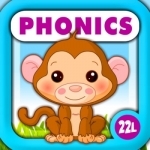
Phonics Island • Letter Sounds
Education and Games
App
***** Parents‘ Choice Awards winner ***** Developed by an award-winning education studios,...

Phonics Island, Letter Sounds games & Alphabet Learning: Preschool Kids Reading
Education and Games
App
***** Parents‘ Choice Awards’ winner ***** Developed by an award-winning education studios,...
Laura Doe (1350 KP) rated Inside the Mind of Jeffrey Dahmer: The Cannibal Killer in Books
Mar 12, 2022
Jeffrey Dahmer is one of the serial killers that I didn’t know too much about and this book was definitely a revelation. It takes you through from Dahmer being born right up to his death and a lot of the in between.
I’ve never read this author before but am aware of some of his other books and I think that this book was a good one to start with. I liked that we delved into Dahmer’s childhood and found some possible triggers from there but also that the author reinforced that not every child that suffers a specific trauma in their childhood becomes a serial killer, as I think it is important that the reader is reminded of this each time.
I also liked how there was a chapter for each of the victims and also in the appendix there were the charges in more detail for each victim too. Far too often when reading or watching documentaries about serial killers their victims are glossed over and forgotten while their killer’s name is remembered.
There were a few things that I disliked about this book, the main one being the whole chapter that seemed to be dedicated to slagging off psychiatrists and psychologists. While psychology is not an exact science and different people in the profession can come to different conclusions, I feel that the author spent too many pages trying to prove his point. I also felt that a lot of contempt for the profession was coming through in the writing, which, as somebody who wants to become a psychologist, is not something that I appreciated. I understand that everyone has their opinion on it, but I felt that far too much time was spent trying to get his point across.
There were also a few mistakes that made it hard to make sense of a few things, I understand that it has only just been published and there will be a few mistakes (there was a repeated word in a sentence that wasn’t needed) but when it is an obvious mistake with a date (in the Anthony Hughes chapter it says that he was last seen on 24th September 1991 and then 2 chapters below it says that his family were notified of his death on 5th July 1991) it makes for very confusing reading.
I also found that a lot of the time Christopher Berry-Dee referred to the book written by Brian Masters, I’m unsure if this was only because he hasn’t spoken to Dahmer in person while Masters did but at times I felt like I should have just picked up his book instead. I also found that sometimes the author seemed to boast about which serial killers he had met in real life when he didn’t need to.
Overall, I liked the humour in the book and found the writing style easy to get on with. It wasn’t a pleasant book (what book about a serial killer is?) but it was well written. I would pick up other books by this author in the future. Thank you to The Motherload book club on Facebook for the opportunity to win this book in a giveaway and the publisher Ad Lib for my copy!
I’ve never read this author before but am aware of some of his other books and I think that this book was a good one to start with. I liked that we delved into Dahmer’s childhood and found some possible triggers from there but also that the author reinforced that not every child that suffers a specific trauma in their childhood becomes a serial killer, as I think it is important that the reader is reminded of this each time.
I also liked how there was a chapter for each of the victims and also in the appendix there were the charges in more detail for each victim too. Far too often when reading or watching documentaries about serial killers their victims are glossed over and forgotten while their killer’s name is remembered.
There were a few things that I disliked about this book, the main one being the whole chapter that seemed to be dedicated to slagging off psychiatrists and psychologists. While psychology is not an exact science and different people in the profession can come to different conclusions, I feel that the author spent too many pages trying to prove his point. I also felt that a lot of contempt for the profession was coming through in the writing, which, as somebody who wants to become a psychologist, is not something that I appreciated. I understand that everyone has their opinion on it, but I felt that far too much time was spent trying to get his point across.
There were also a few mistakes that made it hard to make sense of a few things, I understand that it has only just been published and there will be a few mistakes (there was a repeated word in a sentence that wasn’t needed) but when it is an obvious mistake with a date (in the Anthony Hughes chapter it says that he was last seen on 24th September 1991 and then 2 chapters below it says that his family were notified of his death on 5th July 1991) it makes for very confusing reading.
I also found that a lot of the time Christopher Berry-Dee referred to the book written by Brian Masters, I’m unsure if this was only because he hasn’t spoken to Dahmer in person while Masters did but at times I felt like I should have just picked up his book instead. I also found that sometimes the author seemed to boast about which serial killers he had met in real life when he didn’t need to.
Overall, I liked the humour in the book and found the writing style easy to get on with. It wasn’t a pleasant book (what book about a serial killer is?) but it was well written. I would pick up other books by this author in the future. Thank you to The Motherload book club on Facebook for the opportunity to win this book in a giveaway and the publisher Ad Lib for my copy!
